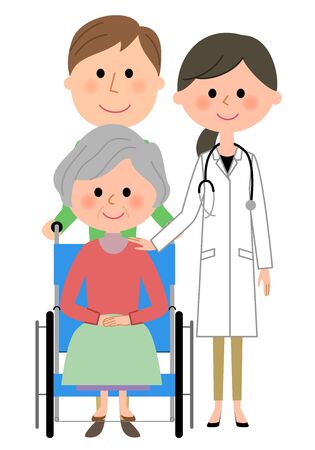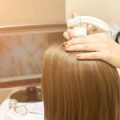1. Understanding Gut Health
When people talk about “gut health,” theyre referring to the well-being of your digestive system, especially the balance and variety of tiny living organisms—called the gut microbiome—that live in your intestines. These microbes include bacteria, fungi, and even viruses, and together they play a huge role in keeping you healthy.
Why Is Gut Health Important?
Your gut isnt just about digesting food. It’s also connected to many parts of your body, including your skin, immune system, and even your mood. When your gut is in balance, you’re more likely to feel good overall. But when something goes wrong, it can show up in surprising ways—like breakouts or acne.
The Role of the Gut Microbiome
The gut microbiome acts like a team of helpers. They break down foods that your body cant digest on its own, produce important vitamins, and help control inflammation. If this system gets out of balance—maybe from stress, antibiotics, or a poor diet—it can cause problems that reach far beyond your stomach.
Gut Health at a Glance
| What’s Involved | Key Functions | Why It Matters |
|---|---|---|
| Bacteria & Other Microbes | Digest food, make vitamins | Support energy and nutrition |
| Gut Lining | Acts as a barrier | Keeps harmful stuff out of bloodstream |
| Immune Cells | Fight off germs | Protects against illness |
Having a healthy gut means all these parts are working well together. When things get off track—like if there’s too much “bad” bacteria or not enough “good” bacteria—it can lead to issues like inflammation or skin problems such as acne. That’s why taking care of your gut isn’t just about avoiding stomachaches; it’s about supporting your whole body, including your skin.
2. What Causes Acne?
Acne is a common skin issue that affects people of all ages, not just teenagers. To really understand the link between gut health and acne, it’s important to know what actually causes those stubborn breakouts. There isn’t just one reason—acne can happen for lots of different reasons, and sometimes several factors work together.
Major Factors That Contribute to Acne
| Factor | How It Affects Acne |
|---|---|
| Hormones | Fluctuations in hormones (especially during puberty, menstruation, pregnancy, or due to certain medical conditions) can increase oil production in your skin, leading to clogged pores and breakouts. |
| Diet | Some foods, especially those high in sugar or dairy, might trigger inflammation or hormonal changes that make acne worse. Your gut health plays a big role in how your body processes these foods. |
| Stress | When you’re stressed out, your body releases more cortisol and other stress hormones. These can boost oil production and make your immune system react differently, both of which may lead to more pimples. |
| Genetics | If your parents had acne, you’re more likely to have it too. Genetics can affect how much oil your skin makes and how sensitive your skin is to different triggers. |
The Gut-Skin Axis: How Your Stomach Influences Your Skin
Your digestive system does more than just process food—it also helps control inflammation and supports your immune system. If your gut bacteria are out of balance (a condition called dysbiosis), it can lead to inflammation throughout the body, including the skin. This is why keeping your gut healthy may help keep acne under control.
Quick Recap: Key Points About Acne Triggers
- Hormones: Fluctuations often cause oily skin and clogged pores.
- Diet: Certain foods can inflame the skin, especially if gut health is off balance.
- Stress: Raises hormone levels that can worsen acne.
- Genetics: Family history plays a big role in whether you get acne.
Understanding these main causes is a good first step toward finding better ways to manage breakouts and support healthier skin from the inside out.
![]()
3. How the Gut and Skin Are Connected
The relationship between our gut and skin has become a hot topic in recent health research. Scientists now talk about something called the “gut-skin axis”—this describes how your digestive health can impact what happens on your skin, including acne breakouts.
Understanding the Gut-Skin Axis
Your gut is filled with trillions of bacteria, known as the gut microbiome. These tiny organisms help digest food, support your immune system, and even produce vitamins. When your gut microbiome is balanced, it helps keep inflammation under control throughout your body—including your skin. But when things get out of balance (a state called dysbiosis), it can trigger skin problems like acne.
How Gut Imbalances Affect Your Skin
| Gut Issue | Skin Impact | Possible Symptoms |
|---|---|---|
| Dysbiosis (Imbalance of good & bad bacteria) | Increases inflammation, may lead to more acne flare-ups | Redness, swelling, pimples |
| Poor digestion or leaky gut | Toxins may escape into the bloodstream, causing skin irritation | Sensitivity, rashes, breakouts |
| Lack of fiber or probiotics in diet | Reduces protective bacteria, making skin more prone to irritation | Dullness, uneven texture, more blemishes |
What Does Research Say?
Recent studies in the U.S. have found that people with acne often have different gut bacteria compared to those with clear skin. Researchers believe that when the gut is inflamed or unbalanced, it sends signals through the immune system that can make your skin more likely to break out. Some scientists are even exploring how probiotic supplements or high-fiber diets might help reduce acne by improving gut health.
All in all, taking care of your gut isn’t just about digestion—it’s also an important step toward clearer, healthier skin.
4. Improving Gut Health to Fight Acne
If you’re looking to get clearer skin, taking care of your gut is a smart place to start. Scientists have found that what’s happening in your digestive system can directly affect your skin, including acne breakouts. Here are some easy, science-backed ways to support your gut health and help your skin glow from the inside out.
Eat More Gut-Friendly Foods
Your daily diet has a big impact on the balance of good and bad bacteria in your gut. Try adding these foods to your meals:
| Food Type | Examples | Gut & Skin Benefits |
|---|---|---|
| Probiotic-rich foods | Yogurt (with live cultures), kefir, kimchi, sauerkraut, miso, kombucha | Help restore healthy gut bacteria, which may reduce inflammation linked to acne |
| Prebiotic foods | Bananas, onions, garlic, asparagus, oats, apples | Feed the good bacteria in your gut so they can thrive and protect your skin |
| Fiber-rich foods | Berries, lentils, broccoli, whole grains | Keeps digestion moving and supports a healthy gut lining for better nutrient absorption |
Add Probiotics and Prebiotics to Your Routine
Probiotics: These are live “good” bacteria you can get from supplements or fermented foods. Research suggests probiotics may help calm inflammation that triggers acne.
Prebiotics: These are plant fibers that feed your healthy gut bacteria. You can find prebiotic supplements or simply eat more fiber-rich foods.
Tip:
If you’re new to probiotics or prebiotics, start slowly. Too much at once can sometimes cause mild bloating as your body adjusts.
Lifestyle Habits for a Happier Gut and Clearer Skin
- Manage Stress: High stress levels can mess with your gut bacteria and trigger breakouts. Try mindfulness practices like meditation or yoga—even just a few minutes a day helps.
- Stay Hydrated: Drinking enough water keeps everything moving smoothly in your digestive tract and helps flush out toxins.
- Aim for Consistent Sleep: Quality sleep supports your body’s natural healing processes—including both your gut and your skin!
- Move Your Body: Regular exercise boosts circulation and helps regulate digestion, which benefits both gut health and skin clarity.
- Avoid Overusing Antibiotics: While antibiotics are sometimes necessary, overuse can harm your gut microbiome. Only take them when prescribed by a healthcare provider.
Your Next Steps for Better Gut Health and Less Acne
You don’t need to overhaul everything overnight! Start by making one or two changes—like swapping soda for water or adding yogurt to breakfast—and notice how you feel. Over time, these small steps can make a real difference for both your gut and your skin.
5. When to See a Professional
If you’ve been trying to improve your gut health and make changes to your skincare routine but still struggle with acne, it might be time to reach out for expert help. Recognizing when to consult with a dermatologist or healthcare provider is key in getting the right treatment and addressing any underlying issues.
Signs You Should See a Professional
| Sign | Description |
|---|---|
| Persistent Acne | Your acne doesn’t improve after several weeks of home care or over-the-counter products. |
| Severe Breakouts | You experience painful cysts, nodules, or widespread breakouts on your face or body. |
| Scarring or Dark Spots | You notice lasting marks or scars developing from acne lesions. |
| Emotional Impact | Your acne affects your self-esteem, social life, or mental health. |
| Other Symptoms | You have digestive issues like bloating, discomfort, or sudden weight changes along with skin problems. |
What to Expect from a Dermatologist or Healthcare Provider
A professional will look at your skin and ask about your medical history, diet, lifestyle, and any gut health symptoms. They might suggest certain tests if they suspect a deeper issue like hormonal imbalance or food sensitivities.
Available Treatment Options
| Treatment Type | Description | Common Examples |
|---|---|---|
| Topical Medications | Creams or gels applied directly to the skin to reduce inflammation and kill bacteria. | Benzoyl peroxide, retinoids, antibiotics |
| Oral Medications | Pills that treat acne from the inside out and address inflammation or infection. | Antibiotics, birth control pills (for hormonal acne), isotretinoin (Accutane) |
| Lifestyle & Diet Changes | Personalized advice on improving gut health through nutrition and stress management. | Probiotics, fiber-rich foods, reducing sugar intake |
| In-Office Procedures | Treatments performed by professionals to reduce scarring and active breakouts. | Chemical peels, laser therapy, extraction procedures |
| Integrative Approaches | Combining Western medicine with holistic practices for overall wellness. | Nutritional counseling, supplements, stress-reducing techniques like meditation |
Takeaway: Don’t Wait Too Long!
If you’re unsure whether your acne is linked to gut health or if it’s something more serious, it’s always okay to ask for help. The sooner you see a professional, the sooner you can get a plan that works for you—and feel confident in your own skin again.


